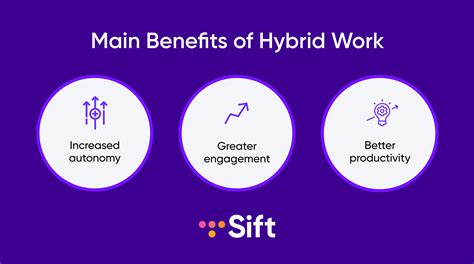Introduction
A hybrid internship is a type of structured learning program that combines in-person and virtual work experiences. Interns can typically work from anywhere, but they may also have to attend occasional in-person meetings or events. Hybrid internships are becoming increasingly popular, as they offer a number of benefits for both employers and interns.

What Are the Benefits of Hybrid Internships?
For employers, hybrid internships offer the flexibility to hire top talent from anywhere in the world. They can also save on costs associated with traditional internships, such as housing and travel expenses. For interns, hybrid internships provide the opportunity to gain valuable work experience without having to relocate. They can also network with professionals from all over the world.
What Are the Challenges of Hybrid Internships?
One of the challenges of hybrid internships is managing communication and collaboration between in-person and virtual teams. It is important to establish clear expectations and guidelines to ensure that all interns are on the same page. Additionally, hybrid internships can sometimes lead to feelings of isolation for virtual interns. It is important to create opportunities for virtual interns to connect with their in-person colleagues.
How to Make a Hybrid Internship Successful
There are a few key factors that can help to make a hybrid internship successful:
- Clear communication and expectations: It is important to establish clear communication and expectations from the outset. This includes defining the roles and responsibilities of interns, as well as the hours and expectations for in-person and virtual work.
- Strong technology: Hybrid internships rely on strong technology to facilitate communication and collaboration. This includes having access to reliable video conferencing tools, instant messaging, and file-sharing platforms.
- Opportunities for connection: It is important to create opportunities for in-person and virtual interns to connect with each other. This can include hosting regular virtual meetings, social events, and team-building activities.
The Future of Hybrid Internships
Hybrid internships are likely to become increasingly popular in the future. They offer a number of benefits for both employers and interns, and they are a flexible and cost-effective way to gain valuable work experience. As technology continues to improve, the challenges of hybrid internships will continue to diminish.
Examples of Hybrid Internships
There are many different types of hybrid internships available. Here are a few examples:
- Virtual internships: Virtual internships are conducted entirely online. Interns work from anywhere in the world, and they communicate and collaborate with their colleagues using video conferencing, instant messaging, and other online tools.
- Hybrid internships: Hybrid internships combine in-person and virtual work experiences. Interns may work from home a few days a week, and they may attend occasional in-person meetings or events.
- Embedded internships: Embedded internships are a type of hybrid internship where interns work at a host company for a specific period of time. They may work on a project team, or they may work on their own projects. Embedded internships provide interns with the opportunity to gain hands-on experience in a specific industry or field.
Conclusion
Hybrid internships are a great option for students who want to gain valuable work experience without having to relocate. They are also a flexible and cost-effective way for employers to hire top talent from anywhere in the world. With careful planning and execution, hybrid internships can be a successful experience for both interns and employers.
Additional Information
Here are some additional resources that you may find helpful:
- The National Association of Colleges and Employers (NACE)
- The Society for Human Resource Management (SHRM)
- The U.S. Department of Labor
Frequently Asked Questions
What is the difference between a virtual internship and a hybrid internship?
A virtual internship is conducted entirely online, while a hybrid internship combines in-person and virtual work experiences.
What are the benefits of hybrid internships?
Hybrid internships offer a number of benefits for both employers and interns, including flexibility, cost-effectiveness, and the opportunity to gain valuable work experience.
What are the challenges of hybrid internships?
One of the challenges of hybrid internships is managing communication and collaboration between in-person and virtual teams.
How can I make a hybrid internship successful?
There are a few key factors that can help to make a hybrid internship successful, including clear communication and expectations, strong technology, and opportunities for connection.
